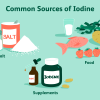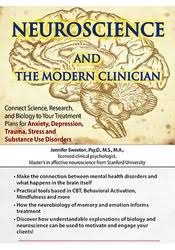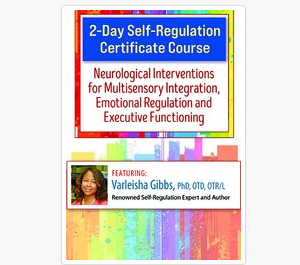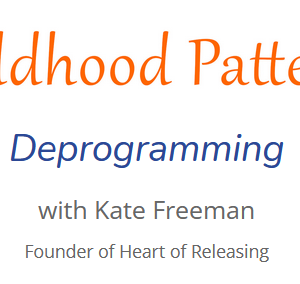Sherrie All – Neuroscience and the Modern Clinician, Connect Science, Research
$200.00 Original price was: $200.00.$75.05Current price is: $75.05.
This recording will connect complicated science and biological concepts to your clinical treatment of anxiety, trauma, stress, depression and substance abuse!
Sherrie All – Neuroscience and the Modern Clinician, Connect Science, Research
Have you ever been asked why therapy works? What are the actual mechanisms of change when working with clients suffering from anxiety, trauma, stress, depression and substance use disorders?
Neuroscience is providing incredible insights into the workings of our brains and helping us to answer age old questions about the connection between our biology and our mental health. While modern understandings of concepts like neuroplasticity help us to explain that change is truly possible, neuroscience also helps us to begin to see why and how techniques might improve emotion regulation, concentration, the ability to restructure unhelpful thoughts, and engage in healthier behaviors.
This recording will connect complicated science and biological concepts to your clinical treatment of anxiety, trauma, stress, depression and substance abuse!
Through captivating and thought-provoking lecture our instructor will show you why neuroscience matters to therapy, make the latest research accessible and user-friendly, and clearly link it to your clinical work.
More than just the neurobiological “whats and whys” of various disorders, you’ll also learn the hows of actual treatment …
- How to engage your clients with understandable explanations of the link between mental health disorders and biology.
- How to draw on multiple modalities, adjunctive treatments and approaches including Cognitive Therapy, Attachment, Mindfulness, Behavioral Activation, and Positive Psychology.
- How to employ practical and adaptable tools with top-down, bottom-up, and horizontal methods.
Leave this recording understanding the neuroscience behind why therapy works and connect it to the practical approaches you can use with clients in your everyday practice!
- Communicate how an understanding of neurological processes can inform mental health professionals’ choice of therapeutic technique.
- Implement in-session psycho-educational techniques to make the neurobiology of mental health conditions understandable for clients thereby improving the potential for motivation and engagement in therapy.
- Establish how neural pathways are related to mental health disorders, and connect this information to the utilization of therapeutic interventions to reduce stress and manage addiction.
- Assess how research on the mechanisms of the brain that detect and respond to threats has enhanced our understanding of anxiety disorders in which altered threat processing is a factor.
- Characterize the role of memory in trauma and communicate how memory malleability impacts the treatment of clients with traumatic memories.
- Articulate how mindfulness can be used as an adjunctive approach in cognitive-behavioral treatment plans to help manage symptoms of depression.
Would you like to receive Sherrie All – Neuroscience and the Modern Clinician, Connect Science, Research ?
How Neuroscience Can Enhance Therapy:
What (and Why) Clinicians Need to Know About the Nervous System
- Brain basics – structure and function
- 12 structures you need to know
- How the brain organizes
- Key pathways involved in common disorders
- Pain pathway
- Reward pathway
- Fear-stress pathway
- Default Mode and Task Mode Networks
- Impact of relationships on our nervous system
- Mirror neurons
- Oxytocin
- Simple explanations and 3-D brain model for clients
- How neurobiology can help you to determine treatment methods and set goals
- ”Our brains” and objectivity in therapy
- Limitations of “brain-based” approaches
Neuroplasticity and the Potential for Change
- Hype vs. the “two-way” street of brain plasticity
- Physical vs. functional change – structural or at the synapse
- The strength of connections
- Timeframes for change
- How neuroplasticity can help you foster change
- Explaining neuroplasticity to clients
Treatment Strategies and Interventions for Common Disorders (And the Neuroscience Behind Them)
Anxiety
- The neural bases of threat processing
- Key CBT concepts and techniques
- Combining cognitive work with:
- Mindful awareness of emotions
- Get physical – how using the body can ease anxiety symptoms
- Breathing exercises and relaxation training
Depression
- The depressed brain – structural and functional
- The neural interrelationships of depression and anxiety
- Behavioral activation – get active!
- Mindfulness as an adjunctive approach
- Compassion, gratitude and depressive symptoms
Trauma
- Malleability of memory: implications for trauma treatment
- How childhood trauma changes the developmental trajectory of the brain
- Polyvagal Theory, trauma and the body – the research
- Imagery techniques – imaginal exposure
- Grounding and interoception
Stress
- How stress impacts the nervous system
- The adverse effects of long-term stress exposure
- The role of the stress/fear pathway
- CBT-based coping skills for stressful situations
Substance Use Disorders
- Brain areas involved in addiction
- Pleasure and pain pathways
- Prefrontal connections and judgement
- How addiction can change the brain
- Motivational Interviewing
- Contingency management
The Limitations of Neuroscientific Research and Potential Treatment Risks
- fMRI imaging – blood flow vs. neuronal activity
- How only looking at brain activations produces an incomplete picture
- Neuroscientific studies, sample size, and validity
- Animal research – directly applicable to humans?
- Psychotherapeutic techniques – specific limitations and risks
Be the first to review “Sherrie All – Neuroscience and the Modern Clinician, Connect Science, Research” Cancel reply
Related products
Health & Medical
Peter H Addy – Psychedelics, Hallucinogens and Entheogens – What Clinicians Need to Know
Health & Medical
Health & Medical
Kate Freeman – Heart Of Releasing – Healthy Body, Beautiful Being
Health & Medical













Reviews
There are no reviews yet.